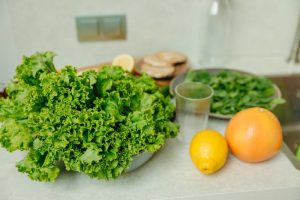Seasonal Superfoods You Must Try
Winter may not be the season most associated with fresh, vibrant produce, but that doesn’t mean it’s lacking in delicious, nutrient-packed options. In fact, the colder months offer a surprising array of seasonal superfoods that can boost your health, comfort your taste buds, and brighten up your meals. Let’s dive into the world of winter superfoods that you must try to embrace the chill with a healthy and tasty approach.
 Sweet Potatoes: A Winter Superstar
Sweet Potatoes: A Winter Superstar
Sweet potatoes are an absolute winter treasure. These vibrant, orange-hued spuds are a fantastic source of vitamins A and C, fiber, and antioxidants. They also have a lower glycemic index compared to regular potatoes, which means they won’t cause rapid spikes in blood sugar levels. Roasted, mashed, or baked, sweet potatoes add both flavor and nutrition to your winter dishes.
Citrus Fruits: Nature’s Vitamin C Boost
Citrus fruits like oranges, grapefruits, lemons, and tangerines are at their peak during the winter months. Packed with immune-boosting vitamin C, these fruits are essential for warding off colds and flu. You can enjoy them fresh, as a juicy snack, or turn them into refreshing juices, zesty salads, or citrus-infused marinades.
Kale: A Nutrient-Packed Leafy Green
Kale is often referred to as a superfood for good reason. This leafy green is loaded with vitamins, minerals, and antioxidants. It’s especially high in vitamins K, A, and C, as well as fiber and folate. Use kale in salads, stir-fries, or soups to add a healthy dose of nutrients to your winter meals.
Brussels Sprouts: Tiny Nutritional Powerhouses
Brussels sprouts may not be everyone’s favorite vegetable, but they’re worth a second chance. These mini cabbages are rich in fiber, vitamins C and K, and contain compounds that have been linked to cancer prevention. Roasting them with olive oil, garlic, and a sprinkle of parmesan can turn them into a tasty side dish.
Pomegranates: A Burst of Antioxidants
Pomegranates are a winter delight, filled with juicy, ruby-red seeds packed with antioxidants. These little gems are not only delicious but also a rich source of vitamin C and fiber. Sprinkle pomegranate seeds over salads, yogurt, or oatmeal for a sweet-tart flavor explosion.
Cauliflower: A Versatile Veggie
Cauliflower is an incredibly versatile winter vegetable that can be transformed into a variety of dishes. It’s low in calories but high in vitamins C and K, and it contains beneficial compounds that may help fight cancer. You can roast it, mash it as a lower-carb alternative to potatoes, or even turn it into cauliflower “rice” for a lighter twist on fried rice.
Cranberries: The Ultimate Winter Berry
Cranberries are a quintessential winter ingredient, especially around the holidays. These tart little berries are rich in antioxidants and vitamin C. They are great for urinary tract health and can be used in sauces, jams, and as a garnish for both sweet and savory dishes.
Winter Squash: A Hearty and Healthy Choice
Varieties of winter squash, like butternut, acorn, and spaghetti squash, are abundant in the colder months. These vegetables are an excellent source of vitamins A and C, as well as fiber and potassium. Roast them, use them in soups, or stuff them with a flavorful filling for a warm, satisfying meal.
Turnips: Rooted in Nutrition
Turnips may not be the most glamorous vegetable, but they are nutritional powerhouses. They’re rich in vitamins C and K, fiber, and minerals like potassium. Their peppery flavor adds a kick to stews, soups, and roasted vegetable medleys.
Don’t let the winter season deter you from enjoying fresh, nutritious, and delicious foods. Seasonal superfoods like sweet potatoes, citrus fruits, kale, and more offer a wide range of flavors and nutrients to enhance your winter meals. Explore these ingredients in your cooking, and you’ll not only embrace the chill but also nourish your body with the best nature has to offer.










